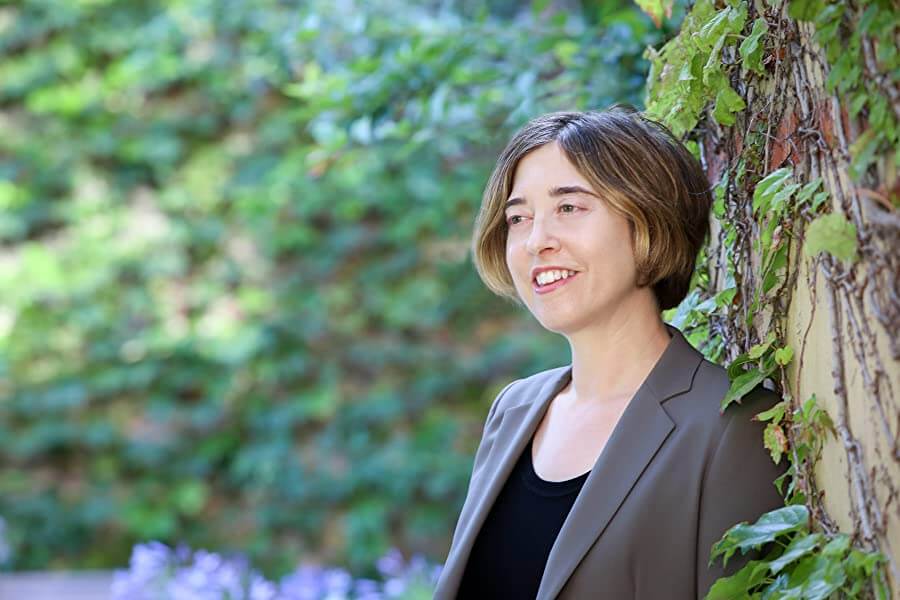Project on Prisons and COVID-19 Rises to Drive National Research
UCLA Law Magazine | Fall 2020 | Volume 43

Illuminating the dark corner where the COVID-19 pandemic meets America’s prison system, in 2020 UCLA School of Law’s COVID-19 Behind Bars Data Project grew from an idea to a one-of-a-kind national clearinghouse of information.
The goal is audacious: to become the most significant and complete collection of data on coronavirus-related cases and deaths in jails and prisons, releases from incarceration due to the pandemic, states’ COVID-19-related visitation policies and much more. Documents and data assembled and made public by the project are already being used by scientists, advocates and attorneys around the country, and they will likely prove invaluable as policymakers assess the unprecedented crisis unfolding in jails and prisons.
More than 80 media outlets have cited the project in coverage of COVID-19 infections in lock-ups, and in July, Professor Sharon Dolovich, who directs the project, co-authored, along with members of the Johns Hopkins University Bloomberg School of Public Health, a Journal of the American Medical Association article showing that people confined in federal prisons test positive for COVID-19 at a rate 5.5 times higher than that of the general public.
“All of this work is in service of getting the most comprehensive picture we can of how COVID is impacting people in custody,” says Dolovich. “When this is over and people try to make sense of COVID in custody, the effort of our team will be the foundation for analysis that can be used to improve the health and safety of incarcerated people and those who interact with them.”
Launched in March by Dolovich and UCLA Law student Keegan Hawkins ’21, the COVID-19 Behind Bars Data Project now has a full-time staff of seven, a dozen other staffers and nearly 70 volunteers. This includes a dozen UCLA Law students earning credit for their research into issues such as the presence of COVID-19 among the prisoner population, relevant case law, compassionate release petitions, and an ever-growing list of prison policy changes, court filings and rulings.
Dolovich has been a member of the UCLA Law faculty since 2000 and is the longtime leader of UCLA Law’s Prison Law and Policy Project. Co-editor of the 2017 book The New Criminal Justice Thinking, she has helped to create a national network of scholars focused on prison law, a network that has proven invaluable as the COVID-19 Behind Bars Project has taken off.
The deputy director of the project is Aaron Littman, a Binder Clinical Teaching Fellow at UCLA Law and former impact litigation staff attorney at the Southern Center for Human Rights in Atlanta. The Binder program, named for the late UCLA Law professor and clinical legal education pioneer David Binder, offers fellows the opportunity to teach courses and act as supervising attorneys in law school clinics as they prepare to pursue permanent faculty positions.
The scope of the project – which has attracted funding from the Centers for Disease Control, as well as the nonprofit Vital Projects Fund and the Arnold Ventures – has expanded with the influx of volunteers and their related interests and expertise. Today, teams are investigating conditions and policies in juvenile facilities and immigration detention centers. The project houses what Dolovich calls a “Freedom of Information Act shop” that maintains a briefing bank and helps craft FOIA requests to unearth information about testing efforts and policies from often-resistant prison bureaucracies.
Project members’ tireless efforts in collecting data on COVID-19 cases from more than 1,600 facilities and correctional systems have paid off. The vast information repository has gained such widespread recognition and importance that, in addition to the many media citations, the CDC has been relying on the project’s data in its own tracking of the pandemic.
Dolovich says the work is both dispiriting and inspiring. “For the people inside and for the cause for controlling the virus as a whole, the state of affairs is disastrous,” she says. “Ninety of the 100 hot spots in the country are prisons or jails. The fact is, you have these congregate settings where hundreds or even thousands of people are living in close quarters, and yet courts and prison leaders are showing indifference to enforcing policies that would make these populations less vulnerable.”
But she has been amazed to see the effort from the UCLA Law alumni, colleagues, students and staffers who have built the COVID-19 Behind Bars Data Project into a powerhouse: “The level of commitment, compassion and readiness to contribute to the enterprise has been awe-inspiring and is giving me hope.”